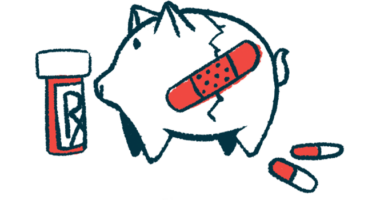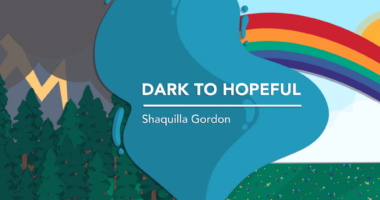Becoming a parent while living with PNH, Part 4
After my daughter was born, my disease led to unforeseen consequences

Last in a series. Read parts one, two, and three.
The months following the delivery of my daughter, Joelle, were some of the most wonderful months of my life. But they were some of the hardest, too, especially when the symptoms of my paroxysmal nocturnal hemoglobinuria (PNH) were so unpredictable.
I now don’t think I could’ve prepared for what was ahead of me. I was constantly on my toes waiting for my newborn to need something. My own needs? They got pushed aside so I’d be available when she cried. I wasn’t sleeping. I wasn’t eating. And quite frankly, I wasn’t taking care of myself, and my PNH suffered because of it.
Looking back, I should’ve asked for more support. I’m so grateful that I was surrounded by many loved ones who offered to help with the baby, but for some reason, I always said no. I felt early “mom guilt,” believing I should be the main caregiver for my child. But I should’ve been honest with myself: I wasn’t capable of handling all the things I put on my plate.
For future babies, I plan to rely more on help so I’ll have the time to take care of myself.
Postpartum preeclampsia
After the delivery, I stayed at the hospital for the standard two days. My vitals were taken every few hours, and each time, my blood pressure got higher and higher. Before my discharge, I was diagnosed with gestational hypertension and told to read my blood pressure at home and follow up with my OB-GYN. But I wasn’t given medication.
Two days later, my doctor felt my at-home readings were getting too high, so she sent me back to the hospital. Leaving my newborn and husband to go back there was devastating.
I’d developed postpartum preeclampsia and was given a 24-hour IV dose of magnesium sulfate, which was uncomfortable, to say the least. I had double vision and a terrible migraine, and I couldn’t walk unassisted. But luckily the medication brought my blood pressure down, and I was able to leave the hospital after two nights there.
Mastitis
Throughout my pregnancy, I’d made up my mind that I wouldn’t breastfeed. Although my Soliris (eculizumab) medication was deemed safe for it, I just didn’t feel comfortable. Within the month of my delivery, however, the national formula shortage began, and I felt guilty if I didn’t at least try to breastfeed in hopes that I’d leave formula for other mothers who were struggling to feed their babies.
Since I decided at the last minute to breastfeed, I wasn’t prepared or educated. I ended up breastfeeding for five weeks, but since I was inconsistent with pumping, my supply started to decline. One morning I woke up in terrible pain and knew I had a clogged milk duct, which developed into mastitis — which in my case led to an infected breast.
I tried at-home remedies, but because of my PNH, my body couldn’t fight the infection. Later that night, my fever reached 103 F. That’s when I knew it was time to leave my baby again to go back to the hospital.
Once there, the staff couldn’t contact my insurance company because of its weekend hours. In the delay, my untreated infection got worse: My fever wasn’t letting up, and my liver enzymes became too high to take medication. I was then moved to intensive care, where ice packs were placed around my body as well as a cooling blanket, all to regulate my body temperature. To say this treatment was traumatic would be an understatement.
A few days later I started taking an antibiotic, Zosyn (piperacillin and tazobactam), and finally my fever began to come down. As I started to feel better, I begged to be discharged so I could get home to my baby. I was released after spending five days there.
Being pregnant, having a baby, and becoming a parent while living with PNH is an experience I didn’t think I’d be able to have. Joelle has brought me extreme happiness and fulfillment, and I can’t thank my medication at the time, Soliris, enough for making that possible. Without treating my PNH, I wouldn’t have been safe while pregnant.
If you’re a PNH patient considering having a baby, please know that my door is open if you’d like to connect through the comments below. Thank you all for joining me as I’ve discussed this vulnerable time of my life in this series.
Note: PNH News is strictly a news and information website about the disease. It does not provide medical advice, diagnosis, or treatment. This content is not intended to be a substitute for professional medical advice, diagnosis, or treatment. Always seek the advice of your physician or other qualified health provider with any questions you may have regarding a medical condition. Never disregard professional medical advice or delay in seeking it because of something you have read on this website. The opinions expressed in this column are not those of PNH News or its parent company, Bionews, and are intended to spark discussion about issues pertaining to paroxysmal nocturnal hemoglobinuria.








